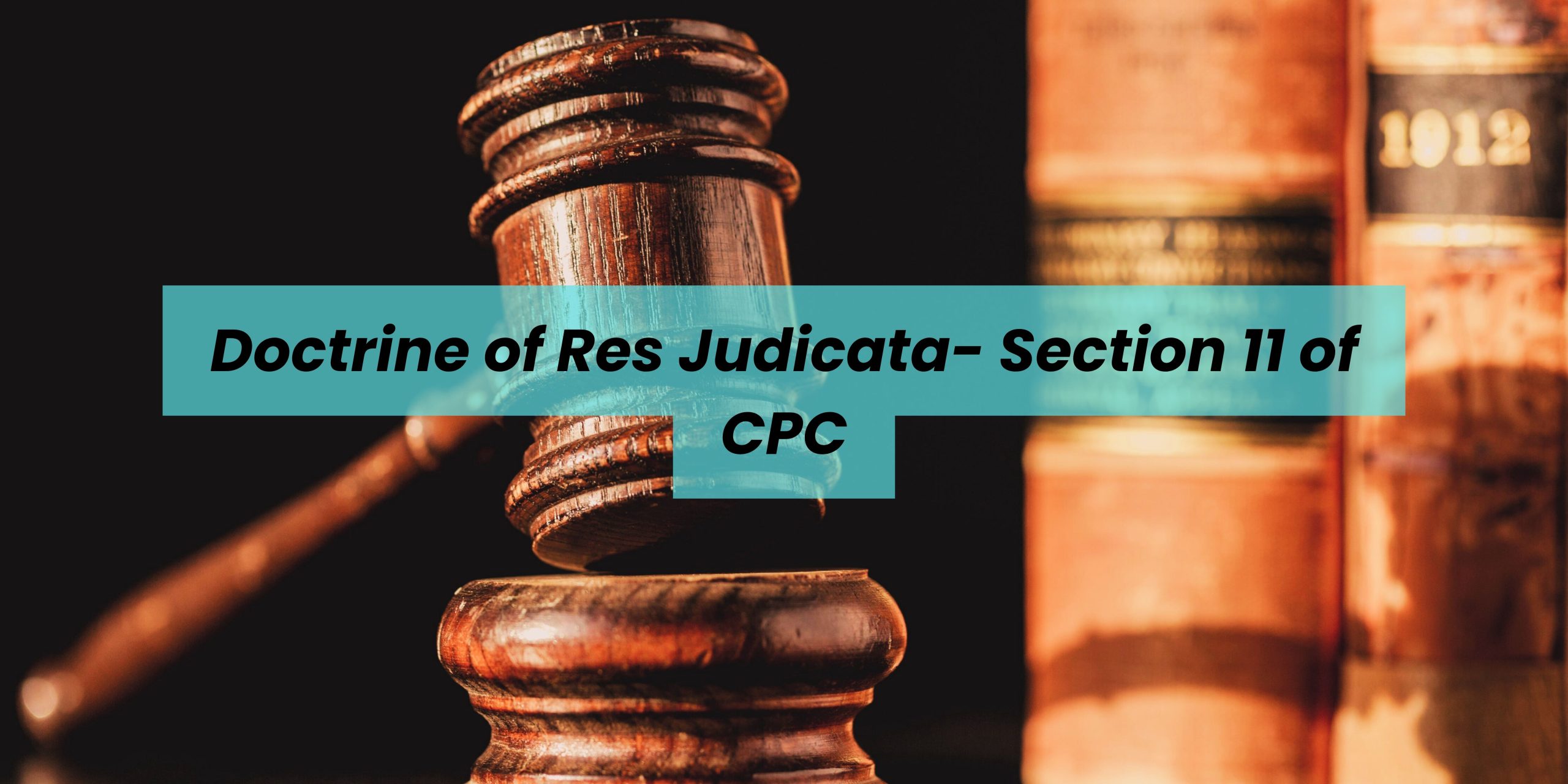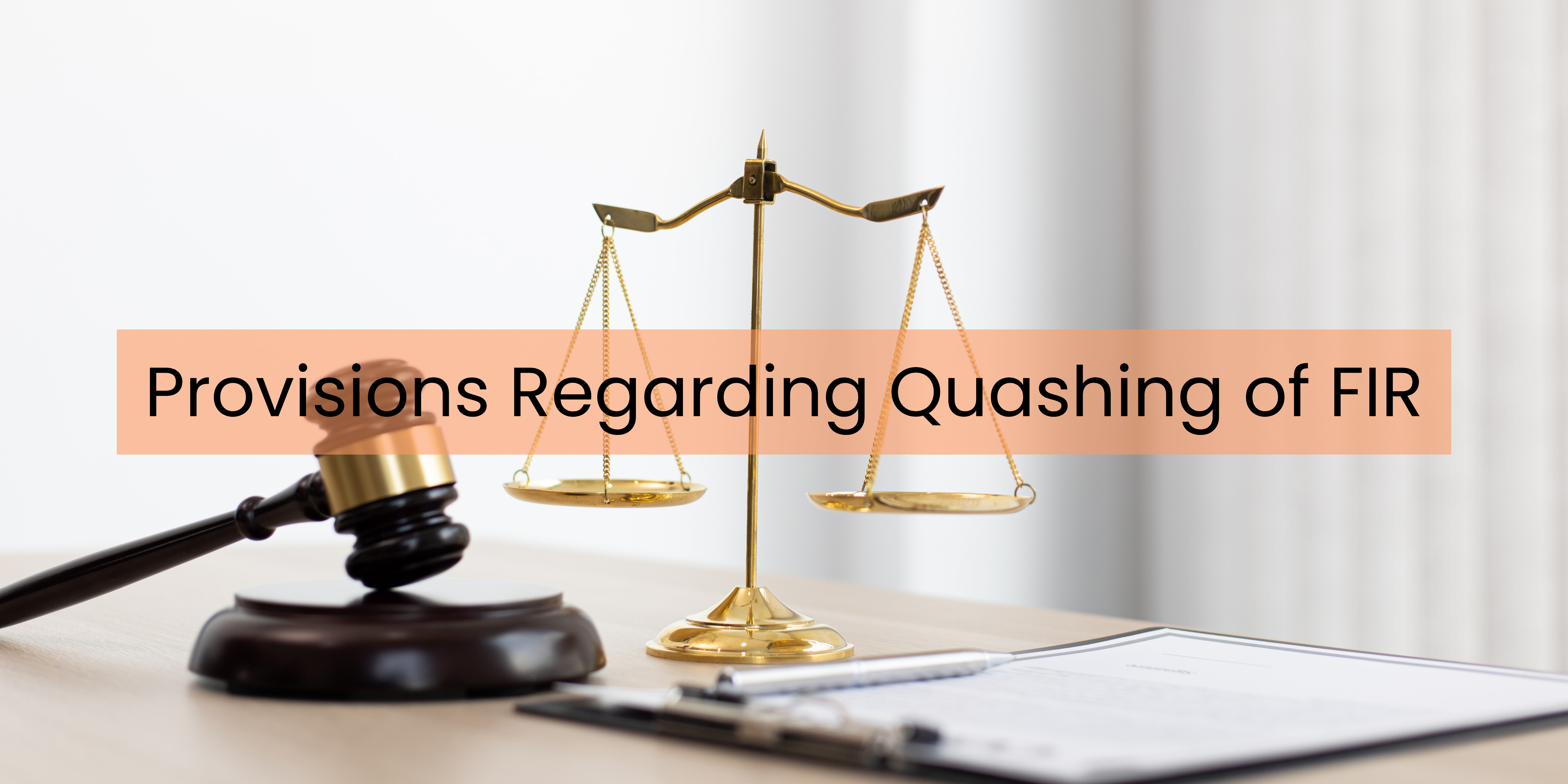Legal proceedings often involve complex principles that impact how cases are handled and decided. One such fundamental principle in the realm of law is the Doctrine of Res Judicata, enshrined in Section 11 of the Civil Procedure Code (CPC) in many jurisdictions. This doctrine holds significant importance in ensuring the finality of judgments and preventing multiple litigations on the same matter between the same parties.
What is Section 11- Doctrine of Res Judicata under the Civil Procedure Code?
Sec 11 of CPC states that:
No Court shall try any suit or issue in which the matter directly and substantially in issue has been directly and substantially in issue in a former suit between the same parties, or between parties under whom they or any of them claim, litigating under the same title, in a Court competent to try such subsequent suit or the suit in which such issue has been subsequently raised, and has been heard and finally decided by such Court.
Explanation I.– The expression former suit shall denote a suit which has been decided prior to a suit in question whether or not it was instituted prior thereto.
Explanation II.– For the purposes of this section, the competence of a Court shall be determined irrespective of any provisions as to a right of appeal from the decision of such Court.
Explanation III.–The matter above referred to must in the former suit have been alleged by one party and either denied or admitted, expressly or impliedly, by the other.
Explanation IV.– Any matter which might and ought to have been made ground of defence or attack in such former suit shall be deemed to have been a matter directly and substantially in issue in such suit.
Explanation V.– Any relief claimed in the plaint, which is not expressly granted by the decree, shall for the purposes of this section, be deemed to have been refused.
Explanation VI.– Where persons litigate bona fide in respect of a public right or of a private right claimed in common for themselves and others, all persons interested in such right shall, for the purposes of this section, be deemed to claim under the persons so litigating.
Explanation VII.– The provisions of this section shall apply to a proceeding for the execution of a decree and references in this section to any suit, issue or former suit shall be construed as references, respectively, to a proceeding for the execution of the decree, question arising in such proceeding and a former proceeding for the execution of that decree.
Explanation VIII.– An issue heard and finally decided by a Court of limited jurisdiction, competent to decide such issue, shall operate as res judicata in a subsequent suit, notwithstanding that such Court of limited jurisdiction was not competent to try such subsequent suit or the suit in which such issue has been subsequently raised.
Meaning:
Section 11 of the law holds a principle called res judicata, meaning a matter that has already been decided. It’s based on the idea that someone shouldn’t face repeated legal battles for the same issue, and there should be a final decision in court cases. Simply put, if there has been a final judgment in a case between two parties, the rule of res judicata stops them from starting a new case on the same matter.
Res means ‘a thing,’ and Judicata means ‘decided.’ So, res judicata means the issue has been decided.
This rule exists mainly for two reasons. First, it prevents the hardship an individual might face by dealing with the same problem multiple times in court. Second, it’s about public policy – it’s better for everyone if legal disputes come to an end instead of dragging on indefinitely.
Difference between Sec 10 and Sec 11 of CPC:
Section 10 deals with ‘res subjudice,’ meaning a matter pending in court, while Section 11 deals with ‘res judicata,’ a matter that’s already been decided by a court.
Section 10 stops the trial of a case if the same matter is already being decided in another case. It prevents two courts from simultaneously deciding on the same issue.
In contrast, Section 11 prevents the trial of a case or a specific issue if the same matter has already been decided in a previous case. It stops the re-litigation of matters that have already received a final judgment in court.
Also Read: What is Stay of Suits under Section 10 of Civil Procedure Code
Essential Elements of Res Judicata:
Note that not every matter decided in a previous case can be used as ‘res judicata’ in a new case. To qualify as ‘res judicata’ under Section 11 with its eight explanations, five conditions need to be met.
Condition 1: The same matter that was significantly argued in the previous case must also be the main matter in the new case, either exactly or closely related.
Condition 2: The previous case should have involved the same parties or those connected to them.
Condition 3: In the previous case, the parties should have litigated using the same legal title or right.
Condition 4: The court which decided the former suit must have been a court which is competent to try the subsequent suit.
Condition 5: The issue debated in the new case must have been heard and finally decided by the court in the former suit.
Illustration:
Imagine there’s a dispute between A and B regarding the ownership of a property. A files a lawsuit against B in Court, claiming ownership of the land. The court hears both sides and delivers a judgment, conclusively deciding that A is the rightful owner of the property.
Later, B decides to take the matter again to the Court and files a fresh lawsuit against A, claiming the same property, ignoring the previous judgment from the Court.
In this scenario, the principle of res judicata comes into play. Despite B’s attempt to start a new case in the appropriate Court, the doctrine of res judicata prevents the Court from re-examining the same matter that has already been conclusively decided by the Court.
Conclusion:
The Doctrine of Res Judicata, as enshrined in Section 11 of the Civil Procedure Code, serves as a vital legal principle aimed at achieving finality in legal proceedings. It prevents unnecessary litigation, promotes judicial efficiency, and upholds the sanctity of court judgments. Understanding the essence and implications of Res Judicata is essential for all involved in legal matters to ensure fairness, efficiency, and the proper functioning of the legal system.


